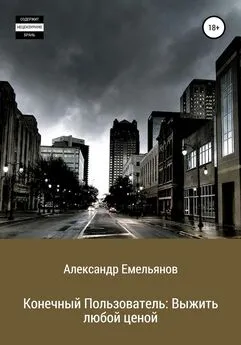Пользователь - o 3b3e7475144cf77c
- Название:o 3b3e7475144cf77c
- Автор:
- Жанр:
- Издательство:неизвестно
- Год:неизвестен
- ISBN:нет данных
- Рейтинг:
- Избранное:Добавить в избранное
-
Отзывы:
-
Ваша оценка:
Пользователь - o 3b3e7475144cf77c краткое содержание
o 3b3e7475144cf77c - читать онлайн бесплатно полную версию (весь текст целиком)
Интервал:
Закладка:
that the way to make prosperity was to spend; but Lanny seemed to have the idea that you
ought to buy cheap foods and give them to the poor. Wouldn't that demoralize the poor and
make parasites of them? Irma thought she saw it happening to a bunch of "comrades" on the
Riviera who practically lived on the Budd bounty, and rarely said "Thank you." And besides,
what was to become of the people who raised the more expensive foods? Were they going to
have to eat them?
Life is a compromise. On Sunday evening Lanny would go down into the Old Town of Cannes
and explain the wastes of the competitive system to a group of thirty or forty proletarians:
French and Provencal, Ligurian and Corsican, Catalan and even one Algerian. On Monday
evening he would take his wife and mother to Sept Chenes and play accompaniments for a
singer from the Paris opera at one of Emily's soirees. On Tuesday he would spend the day helping
to get ready for a dinner-dance at Bienvenu, with a colored jazz band, Venetian lanterns with
electric lights all over the lawns, and the most fashionable and titled people coming to do
honor to the daughter of J. Paramount Barnes. Yes, there were still some who had money and
would not fail in their economic duty! People who had seen the storm coming and put their
fortune into bonds; people who owned strategic industries, such as the putting up of canned
spaghetti for the use of millions who lived in tiny apartments in cities and had never learned
how to make tomato sauce!
VII
Robbie Budd came visiting that winter. He had some kind of queer deal on; he was meeting with
a former German U-boat commander who had entered the service of a Chinese mandarin, and
this latter had been ousted and now wanted Budd machine guns so as to get back. He had got
the support of some bankers in French IndoChina, but they didn't want to buy French
munitions, for fear of publicity—a shady affair all round, but Robbie explained with a grin that
one had to pick up money where one could these days. No chance to sell any of the products of
peace in Europe now!
He told the same stories of hard times which his son had heard in Berlin and Vienna. There
were breadlines in all the American cities, and on street corners one saw men, and some women,
stamping their feet and holding out apples in their half-frozen hands. The price of apples having
slumped, this was a way to get rid of them; a nickel apiece, Mister, and won't you help a poor guy
get a cup of coffee? There was no way to count the unemployed, but everybody agreed that the
number was increasing and the situation was terrible. Robbie thanked God for the Great
Engineer whom he had helped to elect President; that harassed man was standing firm as a rock,
insisting that Congress should balance the budget. If it was done, business would pick up in the
end. It always had and always must.
Robbie had paid off one-half of the notes which he had given to Lanny, Beauty, and
Marceline as security for the money turned over to him during the Wall Street panic. He had
invested a hundred and fifty thousand dollars for the three of them in United States
government bonds, and now tried to persuade them to shift it to stocks. They discussed the
matter for an hour or so, sitting in front of a blazing fire of cypress wood in the drawing-room of
the home. Beauty wavered, but Lanny said "No," and said it again and again.
"Look where steel is now!" exclaimed the father.
"But," argued the younger man, "you said exactly the same thing when you were here last time.
You were sure it couldn't go lower."
He took his father on a tour of the civilized world. Where was there a nation that had money
to buy American steel? Britain, France, Germany—all could make more than they could market,
and the smaller nations were kept going only by the fears of their creditors. Here was Robbie,
himself a steel man, reduced to selling to Chinese mandarins and South American revolutionists!
Russia wanted steel desperately, but had to learn to make it for herself because she had no
foreign exchange and nobody would trust her. "And you talk about steel 'coming back'!"
exclaimed the son.
Robbie couldn't answer, but neither could he change. He knew that Lanny got his ideas out
of his Pink and Red papers—which he kept in his own study, so as not to offend the eyesight of
his relatives and friends. All these papers had a vested interest in calamity; but they couldn't
be right, for if so, what would become of Robbie's world? He said: "Have it your way; but
mark what I tell you, if only Hoover can hold out against inflationary tendencies, we'll be
seeing such a boom as never was in the world before."
VIII
Lanny returned to the delights of child study. Truly a marvelous thing to watch a tiny
organism unfolding, in such perfect order and according to schedule. They had a book which
told them what to expect, and it was an event when Baby Frances spoke her first word two full
weeks ahead of time, and a still greater thrill when she made her first effort to get up on her feet.
All, both friends and servants, agreed that they had never seen a lovelier female infant, and
Lanny, with his imaginative temperament, fell to speculating as to what might become of her.
She would grow up to be a fine young woman like her mother. Would it be possible to teach her
more than her mother knew? Probably not; she would have too much money. Or would she?
Was there any chance of a benevolent revolution on the Viennese model, compelling her to do
some useful work?
He had the same thought concerning his half-sister, who was ripening early in the warm
sunshine of the Midi and in the pleasure-seeking of its fashionable society. Marceline was going to
be a beauty like her mother; and how could she fail to know it? From earliest childhood she had
been made familiar with beauty-creating and beauty-displaying paraphernalia: beauty lotions,
beauty creams, beauty powders and paints, all put up in such beautiful receptacles that you
couldn't bear to throw them away; clothing designed to reveal beauty, mirrors in which it was to
be studied, conversation concerning the effects of it upon the male for whom it was created. Self-
consciousness, sex-consciousness were the very breath of being of this young creature, paused on
tiptoe with excitement, knowing by instinct that she was approaching the critical period of her
life. The prim Miss Addington was troubled about her charge, but Beauty, who had been that
way herself, took it more easily. Lanny, too, had been precocious at that age, and so could
understand her. He would try to teach her wisdom, to moderate her worldly desires. He would
talk about her father, endeavoring to make him effective as an influence in her life. The pictures
made him a living presence, but unfortunately Marceline did not know him as a poor painter
on the Cap, working in a pair of stained corduroy trousers and an old blue cap. She knew him as
a man of renommé, a source of income and a subject of speculation; his example confirmed her
conviction that beauty and fame were one. To receive the attentions of other persons was what
she enjoyed. Important persons, if possible—but anyone was better than no one!
IX
Amid this oddly assorted family Parsifal Dingle went on living his quietist life. He had the
firm faith that it was impermissible to argue with people; the only thing was to set an example,
and be certain that in due course it would have its effect. He took no part in any controversy,
and never offered an opinion unless it was asked for. He sought nothing for himself, because, he
said, everything was within him. He went here and there about the place, a friend of the
flowers and the birds and the dogs. He read a great deal, and often closed his eyes; you wouldn't
know whether he was praying or asleep. He was kind to everybody, and treated rich and poor
the same; the servants revered him, having become certain that he was some kind of saint. His
fame spread, and he would be asked to come and heal this person and that. The doctors
resented this, and so did the clergy of the vicinity; it was unsanctioned, a grave violation of the
proprieties.
At least an hour every day Mr. Dingle spent with Madame Zyszynski, and often Beauty was
with him. The spirits possessed the minds of this pair, and the influence of the other world
spread through the little community. Beauty began asking the spirits' advice, and taking it in
all sorts of matters. They told her that these were dangerous times, and to be careful of her
money. The spirit of Marcel told her this, and so did the spirit of the Reverend Blackless—so he
referred to himself. Beauty had never taken his advice while he was living, but assumed he
would be ultra-wise in the beyond. As economy was what Lanny wanted her to practice, he felt
indebted to the shades. Being a talkative person, Beauty told her friends about her "guides," and
Bienvenu acquired- a queerer reputation than it had ever had, even when it was a haunt of
painters, munitions buyers, and extra-marital couples.
Lanny would try his luck with a seance now and then. The character of his spirit life
underwent a change; Marie receded into the background and her place was taken by Marcel and
Great-Great-Uncle Eli Budd. These two friends of his boyhood told him much about
themselves, and held high converse with each other in the limbo where they dwelt; just so had
Lanny imagined them after their death, and it confirmed his idea that he was getting an
ingenious reconstruction of the contents of his own mind. Now and then would appear some
fact which he hadn't known before; but he argued that he might have heard it and forgotten it.
He had had many intimate talks with both his former relatives, and surely couldn't remember
every detail.
His theory was confirmed by the fact that he received a cordial letter from Mr. Ezra
Hackabury, who was trying to keep out of bankruptcy in the town of Reubens, Indiana.
Terrible times, he reported; but he hoped people would still have to have kitchen soap. The
question was being answered in monthly sales reports, and meanwhile Mr. Hackabury pitched
horseshoes behind the barn, as in the old days, and wondered if Lanny had kept up his skill in
this art. When Lanny wrote what the spirits had said, the soapman replied that it was with him
as it had been with Mark Twain: the report of his death was exaggerated. In the course of a
year and a half of intercourse with Tecumseh, Lanny had recorded several cases of the
chieftain's failure to distinguish between the living and the dead, and Lanny drew from this
fact the conclusion which satisfied his own mind—at the same time overlooking a number of
other facts which didn't. In this behavior he had the example of many leading men of science.
X
So passed a pleasant period in the well-cushioned limousine in which Lanny Budd was
rolling through life. He was unhappy about the sufferings of the world, but not so unhappy
that he couldn't eat the excellent meals which the servants of both the villa and the Cottage
prepared; not so unhappy that he couldn't read the manuscripts which Rick sent him, and the
first draft of a Silesian Suite which Kurt submitted. He taught his Pink class, and argued with
Читать дальшеИнтервал:
Закладка:




